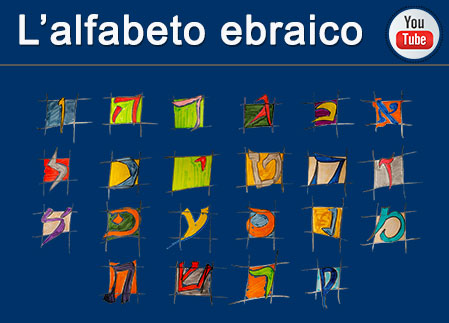World Council of Churches
Svizzera 31/08/1992
Adopted by the Central Committee of the World Council of Churches in August 1992as a basis for the ongoing Christian-Jewish dialogue, and sent to member churches for study and action.
The relationship between the World Council of Churches and the Jewish community is as old as the Council itself. It has grown and changed over the years. Much progress has been made after many centuries of controversies in the history of Christian-Jewish relations. On several painfully divisive issues we have come closer to reconciliation. New problems and concerns have, however, come up that need to be addressed.
"Come Holy Spirit, Renew the Whole Creation" was the prayer and theme for the World Council of Churches Assembly in Canberra 1991. There the churches renewed their commitment to seek Christian unity. In doing so they saw that this Christian unity cannot be achieved without wrestling with questions of the wider unity of all humankind.
To its member churches the Assembly reported that, "Today in many parts of the world religion is used as a divisive force, with religious language and symbols being used to exacerbate conflicts." "We need to build mutual trust and a culture of dialogue. This begins at the local level as we relate to people of other faiths, and take common action especially in promoting peace and justice. The first step is to come to know and to trust each other telling our stories of faith and sharing mutual concerns. Both the telling and the hearing of faith are crucial in discerning God's will."
To peoples of other faiths, among whom were Jews, the Assembly affirmed: "In the presence of the representatives of other faiths who have been our guests during this Assembly, we commit ourselves to refuse to be separated from brothers and sisters of other faiths....and to join them in prayers and common endeavours for peace in anticipation of the day when we all may live together in peace and mutual respect."
More than 40 years of hard work by some truly committed people have been summed up in The Theology of the Churches and the Jewish People (WCC Publications, Geneva 1988). This publication furthers the reflection on the "Ecumenical Considerations on Jewish-Christian Dialogue" received and commended to the churches for study and action by the Executive Committee of the World Council of Churches, 1982.
A statement "The Churches and the Jewish People: Towards a New Understanding" was adopted by the members of the World Council of Churches' Consultation on the Church and the Jewish People (CCJP) in Sigtuna, Sweden, in 1988. The main points of the Sigtuna statement make up a foundation for a continued demanding search for better understanding and for tackling new threats and tensions arising in our time. In summary it says:
a. That the covenant of God with the Jewish people continues and that Christians are to thank God for the spiritual treasures which we share with the Jewish people.
b. That antisemitism and all forms of teaching of contempt are to be repudiated.
c. That the living tradition of Judaism is a gift of God and that we, with St. Paul in his letter to the Romans, recognise the continuing vocation of the Jewish people and the promises given to them as a sign of God's faithfulness.
d. That proselytism is incompatible with Christian faith and that claims of faith when used as weapons against anyone are against the spirit of Christ.
e. That Jews and Christians each from their unique perspective have a common responsibility as witnesses in the world to God's righteousness and peace and that they as God's partners have to work in mutual respect and co-operation for justice, reconciliation and the integrity of creation.
The Sigtuna statement reaffirms the unique relationship between Jews and Christians and our shared biblical heritage. We appreciate these important points and trust them to contribute to the strengthening of the foundation of Christian-Jewish dialogue.
DEVELOPING COMMITMENTS
We are called to attend to a variety of commitments, concerns and challenges, among which are the following:
A. Continuing that which is already in process
Relationships already established between the WCC and the Jewish community are valued, and will be continued. At the same time new channels and partners for communication and co-operation will be sought. Among suggestions being made as programme priorities for the Jewish-Christian dialogue are consultations on spirituality and liberation theology. The role and participation of women in Jewish-Christian dialogue is of pre-eminent importance. There is a call and demand for Orthodox Christian-Jewish dialogues. The WCC will assist the churches to understand the theological significance of living Judaism, to examine contemporary theological affirmations vis--vis Judaism and the Jewish people, and to foster implementation of churches' recommendations in Christian teaching, mission and liturgical life.
B. Inviting diversity in the Christian-Jewish Dialogue
We live in an increasing diversity within our own Christian community. Issues of Christian-Jewish relations, as well as those of other interreligious relationships, can and do divide the churches. This is a challenge both to Christian unity and to the building of human community. We seek a widened spectrum of Christian participation in this dialogue. The presence in the Jewish-Christian dialogue also of Christians from Africa, Asia and Latin America would accentuate the universality and diversity of the church and expand the scope of Christian concerns.
We need to open ourselves to the diversity of subjects and partners appropriate to Christian-Jewish conversation. All issues of substance which arise in any segments of our communities are worthy of exploration, not only those which have been on the agenda for official consultations.
C. Addressing Christian-Jewish relationships vis--vis concerns for religious liberty.
Christians, like Jews, are committed to preserve and promote religious liberty for all persons. This implies protesting against violations of those liberties. This perspective intensifies our resolve, rooted in our understanding of Christian history and theology, to oppose vigorously anti-Semitism in all its forms. We have been clear in our stance against anti-Semitism. The First Assembly gathered in Amsterdam in 1948 stated unequivocally: "We call upon all the churches we represent to denounce anti- semitism, no matter what its origin, as absolutely irreconcilable with the profession and practice of Christian faith. Anti-Semitism is sin against God and man".
In a letter to member churches the General Secretary, Emilio Castro, writes: "There is a special obligation for Christians to make sure that antisemitism is combated wherever it appears...The Christian churches are still committed to look into their own traditions, where teachings of contempt for Jews and Judaism proved a spawning ground for the evil of antisemitism. This is why I appeal to Christians in countries where the spectre of antisemitism again haunts the Jewish people, not to fail in their resolve to take action against these acts of racism and to be available in human solidarity." We are now especially aware of the challenge facing many of our communities in Eastern Europe to safeguard religious liberty in their societies, and to address emerging antisemitism. We will strengthen and uphold all such efforts.
D. Relating dialogue and political advocacy
The organisations in the Christian and Jewish communities that engage each other in dialogue are also, for the most part, engaged in expressing their commitment to justice and their concern for the life and witness of their respective communities. Such advocacy is an authentic part of the life of both our communities.
We are called to ensure that dialogue will not undermine, or be unrelated to, forthright conversation about divergent political positions. Attempts to influence or change each other's public positions are an intrinsic part of dialogue and should be more frankly acknowledged.
In this regard, we assume that criticism of the policies of the Israeli government is not in itself anti-Jewish. For the pursuit of justice invariably involves criticism of states and political movements, which does not imply denigration of peoples and much less of faith communities. Expressions of concern regarding Israel's actions are not statements regarding the Jewish people or Judaism, but are a legitimate part of the public debate. The same holds true for a critique - from within or from without - of states and political movements that claim a Christian foundation for their basic values.
E. Living in Christian-Jewish relationship as people committed to justice for all
As people of God, we are called to seek justice, peace and truth, to make common cause with those who are suffering injustice, and with others who are also seeking to be peace-makers. We are committed to work with the Jewish community to the fullest extent possible.
Justice, too, must be the guiding commitment for the WCC in regard to its approach to the Middle East, including the Israeli-Palestinian conflict. The WCC has consistently affirmed that there must be justice and security for the Jewish people in Israel. The Seventh Assembly in Canberra reiterated that the WCC repeatedly has advocated "the right of every state in the area, including Israel, to live in peace within secure and recognised boundaries free from threats or acts of force." We have on many occasions stated clearly that: "the mutual recognition of the Israeli and Palestinian people on the basis of equality is the only guarantee for peace in the region". The dialogue about justice and peace for all peoples of this region is, and will remain, an essential part of our involvement in Christian-Jewish dialogue.
F. Following the Spirit in Dialogue
The Seventh Assembly of the WCC stated that "The need for reconciliation and building mutual trust leads us to move beyond meetings, exchanges and formal encounters to what we might call a 'culture of dialogue'." We are convinced that it is the Spirit that leads us into ever deepening relationship with the Jewish people as an integral part of God's economy of salvation for the world.
In this regard, we feel the need to reassess the institutionalised relationships between our communities at all levels. We renew our commitment to promote Christian-Jewish conversation in regions of the world other than the North Atlantic, in order to bring into a productive encounter the theological insights and experience of Christians and Jews from different parts of the world. The emergence of various theologies of inculturation has taken place for the most part in isolation from developments in Christian- Jewish understanding. The spirit calls us to bring these living streams of insight into both intra-Christian conversations and Christian-Jewish dialogue.
There is a growing quest of spirituality in the world of today. Spiritual values are shared. Spiritual experiences from faith-to-faith meetings abound. We believe that also the Jewish-Christian dialogue can offer spiritual insights. As Christians we can be greatly enriched by the heritage of Jewish spirituality. We affirm the great value of dialogue at the level of spirituality in coming to know and understand Jews as people of prayer and spiritual practice. Such a dimension in the Jewish-Christian dialogue might strengthen a common commitment to justice, peace and truth and to a partaking and creative involvement in the struggles of the world.
239 visualizzazioni.
Inserito 01/01/1970
Relazioni Ebraico-Cristiane
Ultime novità nel sito
- 19/04/2020: Articolo - L’enigma della Maddalena
- 23/02/2020: Articolo - Il locus amoenus nelle catacombe ebraiche e cristiane di Roma
- 16/02/2020: Articolo - Il profetismo nel Vicino Oriente antico
- 13/02/2020: Articolo - I Profeti della Cappella Sistina
- 09/02/2020: Articolo - Gerusalemme e la Terra Santa di Israele


